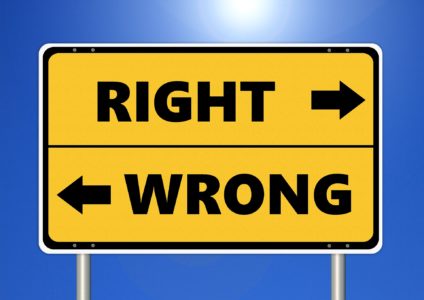
In preparing for today’s blog post, I tried to figure out a way to incorporate the lyrics from: “If Loving You Is Wrong, I Don’t Wanna Be Right.” I couldn’t do it. Instead, the real message of today’s post is a maxim that I learned back in law school: “The law does not provide a remedy for every wrong.” In other words, an employee who has been “done wrong” does not automatically possess a legal right to sue his employer. Two Alabama employees recently learned that lesson when they tried to sue their employers for discrimination.
In Stubbs v. Compass Bank, No. 2:18-cv-00661-RDP, 2018 WL 5084860 (N.D. Ala. Oct. 18, 2018), Pamela Stubbs sued Regions Bank for gender discrimination because she was “treated differently and dealt with more harshly than one of her male coworkers.” At the time of her lawsuit, she remained a current employee of Regions. Nevertheless, she was suing because she took sick leave, and then was “pulled into meetings” about her attendance, but a male employee was not subjected to scrutiny for his sick leave. United States District Judge David Proctor found that Ms. Stubbs’s allegation did not satisfy a crucial requirement of a gender discrimination claim: an “adverse employment action.” Title VII of the Civil Rights Act of 1964 only provides a remedy to employees who suffer “a serious and material change in the terms and conditions, or privileges of employment.” Generally, there must be “a significant change in employment status such as hiring, firing, failing to promote, reassignment with significantly different responsibilities, or a decision causing a significant change in benefits.” Judge Proctor found that getting “pulled into meetings” did not satisfy that standard.
Magistrate Judge John Ott reached a similar conclusion on Martinez v. City of Birmingham, No. 2:18-cv-0465-JEO, 2018 WL 5013861 (N.D. Ala. Oct. 16, 2018). In that case, Randy Martinez sued under Title VII for race and national origin discrimination. His claim was based upon a litany of conduct, including: (1) unjust discipline by placing a letter of reprimand in his employee file; (2) transfer or reassignment to different departments within a short amount of time; (3) working in an area segregated/isolated from other employees; (4) failure to train and/or offer the Martinez continuing education opportunities; (5) unreasonable workload expectations; and (6) falsely investigating Martinez for failure to follow rules and regulations. Judge Ott noted that “not all conduct by an employer negatively affecting an employee constitutes an adverse employment action capable of supporting liability under Title VII.” He then reviewed Mr. Martinez’s allegations and concluded that none of the “wrongs” gave him a legal right to sue under Title VII.
The Stubbs and Martinez decisions don’t give employers carte blanche authority to treat their employees like dirt. From a practical perspective, employers should want their employees to have some level of job satisfaction. From a legal perspective, Stubbs and Martinez also demonstrate that employers can get sued for differential treatment, and spend legal fees defending that treatment, even if they ultimately win. So, the true lesson to be learned is: treat your employees right, and you hopefully won’t get sued. But, if an employee sues you just for being “done wrong,” you will probably have a good defense.